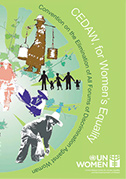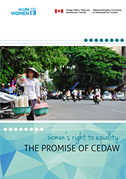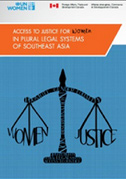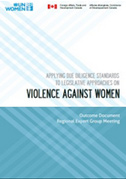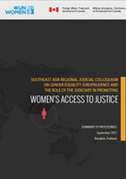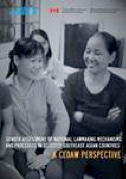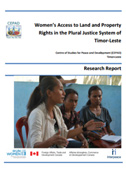Resources and Publications
TEXT OF THE CONVENTION
The Convention on the Elimination of All Forms of Discrimination against Women (CEDAW)
UN Women Regional Office for Asia and the Pacific
The Convention on the Elimination of All Forms of Discrimination Against Women (CEDAW) is an international standard-setting instrument that was adopted by the United Nations in 1979 and came into force in 1982. As of December 2013, 189 countries, over ninety-six percent of the members of the United Nations, are parties to the Convention. CEDAW establishes the universality of the principle of equal rights between men and women.
Languages available (PDF): English
Women’s Rights to Equality: The Promise of CEDAW (2014)
UN Women Regional Office for Asia and the Pacific, Shanthi Dairiam
This publication is intended to share an analytical framework for investigating plural legal systems from the gender perspective. It focuses on the broad spectrum of the legal orders, including those that are informal, not formally recognized, or not State sanctioned covering customary, indigenous, traditional and religious orders. More
Access to Justice for Women in Plural Legal Systems of Southeast Asia
UN Women Regional Office for Asia and the Pacific, Evalyn G. Ursua
This paper enshrines the concept of equality through CEDAW to provide a resource for the ASEAN Intergovernmental Human Rights Commission (AICHR) in its engagement with the ASEAN governments using international standards in promoting and protecting the human rights of women and girl children. More
Applying Due Diligence Standards to Legislative Approaches on Violence against Women (2014)
UN Women Regional Office for Asia and the Pacific, Asmita Basu
Addressing violence against women will require the allocation of necessary resources for training, for shelters, for social work and for curriculum reform within the education system; while bring changes to the administration of the law, with better trained judges, more sensitive to the social and economic realities of the people that are served by the justice system… More
UN Women Regional Office for Asia and the Pacific, Mary Jane N. Real
Judicial Colloquium on Gender Equality Jurisprudence and the Role of the Judiciary in Promoting Women’s Access to Justice in Bangkok, Thailand on 4 -5 September 2013 was intended to enhance regional exchange and learning among members of thejudiciary in Southeast Asia. More
UN Women Regional Office for Asia and the Pacific, Socorro L. Reyes
Making laws that integrate a gender perspective is not only a matter of capacity development; it requires persistence and an ability and commitment to bring change. More
Women’s Access to Land and Property Rights in the Plural Justice System of Timor-Leste (2014)
CEPAD (Centre of Studies for Peace and Development)
This report is based on the participatory action research that was conducted over a period of 12 months by the Centre of Studies for Peace and Development (CEPAD) with support from UN Women examining women’s access to justice in the plural legal system of Timor-Leste with a focus on women’s rights to land and property. More
Supported by:
Latest news
At a glance
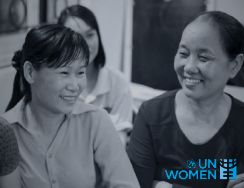
Getting to know more about CEDAW and the Regional Programme in Southeast Asia | CEDAW Brochure
Featured Video
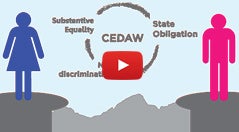
With the support of the Canadian Government through DFATD, this video explains the principle of Non Discrimination (now available in English/Thai/Vietnamese). More
